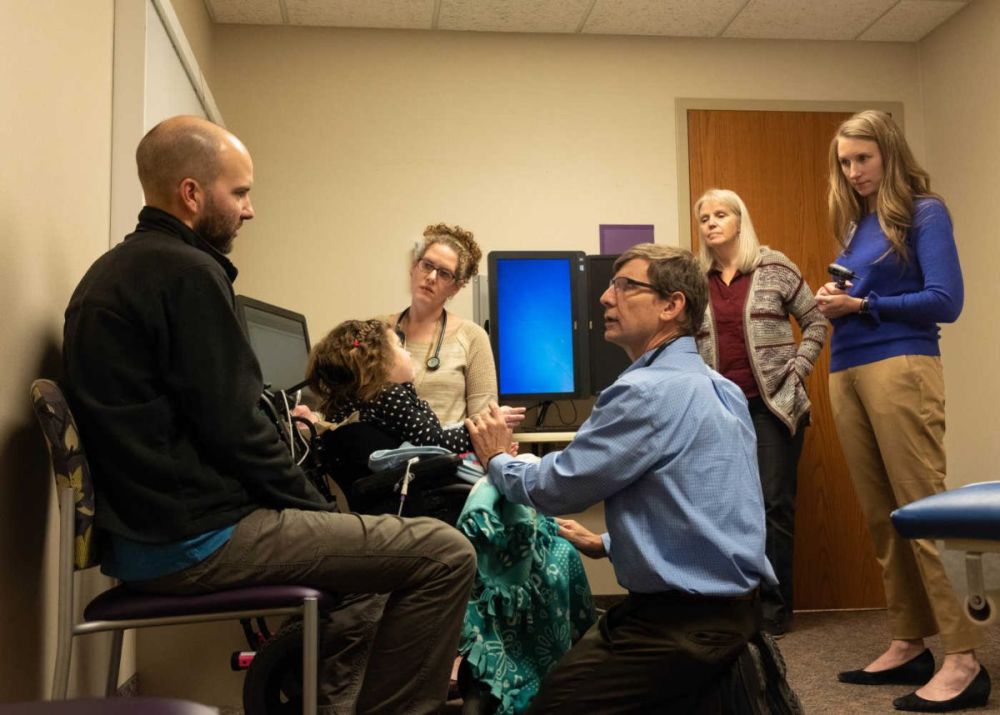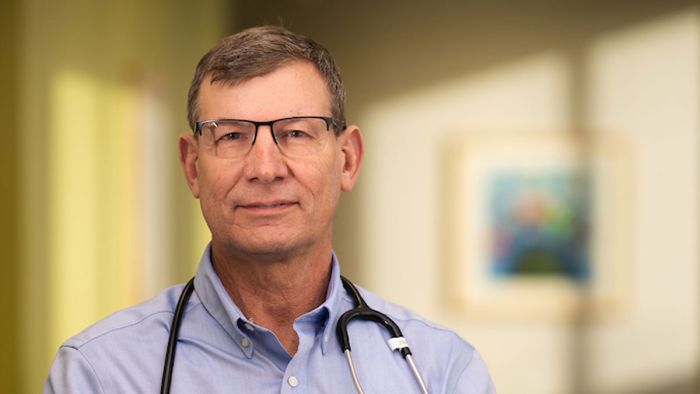“Rare diseases are actually common at Gillette,” says Gillette Children's complex care pediatrician, Arthur Beisang, MD. He’s devoted his life to improving the lives of children diagnosed with a rare disease and is proud Gillette is a world leader in caring for this patient population. “We’re really set up to manage a lot of health issues that come with rare diseases and we’re able to coordinate excellent care for these children,” Beisang adds.
Rare Disease Day is being marked on Tuesday, February 28, 2023. The main objective of the day is to raise awareness about how rare diseases have an impact on people’s lives and our communities. The first Rare Disease Day was celebrated in 2008 on February 29th—Leap Day. That day was chosen because this date only happens every four years. Now that the celebration has grown and is celebrated annually, it takes place in February—a month known for a “rare” number of days.
In the United States, a rare disease is defined as a condition that affects fewer than 200,000 people. One in 20 people will live with a rare disease at some point in their life.
"A series of happy accidents"
Gillette is known worldwide for its expertise in caring for children diagnosed with rare diseases such as Rett syndrome, spinal muscular atrophy (SMA), acute flaccid myelitis (AFM), Legg-Calve Perthesdisease, Prader-Willi syndrome and other conditions. Gillette is one of just 14 clinics in the U.S. designated as a Clinical Research Center of Excellence by the Rett Syndrome Foundation.
Arthur Beisang has cared for this patient population for more than 30 years and calls his professional life in medicine a “series of happy accidents.” His initial career goal was to become a surgeon but a rotation in pediatrics and a partial fellowship in immunology changed his career path.
Beisang says his approach to caring for children who have a rare disease is simple. “I first listen to the concerns of the children and parents and determine what we can do to fill the gaps in their care.”
This approach has led to many successful outcomes and has built strong relationships between Beisang and his patient families. “My favorite success stories are when a patient presents with a distressing symptom and we are able to identify the cause. Many of our patients can’t tell us why they are hurting or distressed. It’s a good feeling to help a family figure it out.”
His work solving medical puzzles and problems has led Beisang to make many discoveries and, as a result, he has a dozen patents on medical devices. Beisang is also inventive in his personal life and says he spends his time away from work “fixing things that break in my lake cabin, beekeeping and spending time with my family—including my six grandchildren.”

Complex care pediatrician, Arthur Beisang, MD, helps families in the Aerodigestive Clinic at Gillette. The clinic offers support and answers for families who think their child may be experiencing aerodigestive problems such as drooling, coughing, choking, difficulty swallowing, and aspiration. (Photo take before COVID-19.)
Every patient and family is valued and worthy of excellent care
Beisang serves on the Chloe Barnes Advisory Council on Rare Diseases (CBACRD) and helped to design a recent survey to gather information that will lead to a better understanding of health care access for Minnesota families as they care for a child with a rare disease. Beisang encourages families and providers to participate in the survey and says “the results will make care even stronger in Minnesota.”
He wants primary care physicians to reach out to Gillette. “I practiced as a general care pediatrician before coming to Gillette fulltime,” Beisang says. "I understand the demands of seeing many patients in a short amount of time in a general clinic. A referral to the Gillette complex care clinic provides the opportunity for another set of eyes to help care for your most complicated patients. Together we can provide a higher quality of care.”
There are many things Beisang appreciates about working at Gillette. “My favorite part of my job is the relationships I’ve developed with my patients and their families. Second, I appreciate the general Gillette attitude that demonstrates that every patient and family is valued and worthy of excellent care.”
 Home Page
Home Page

